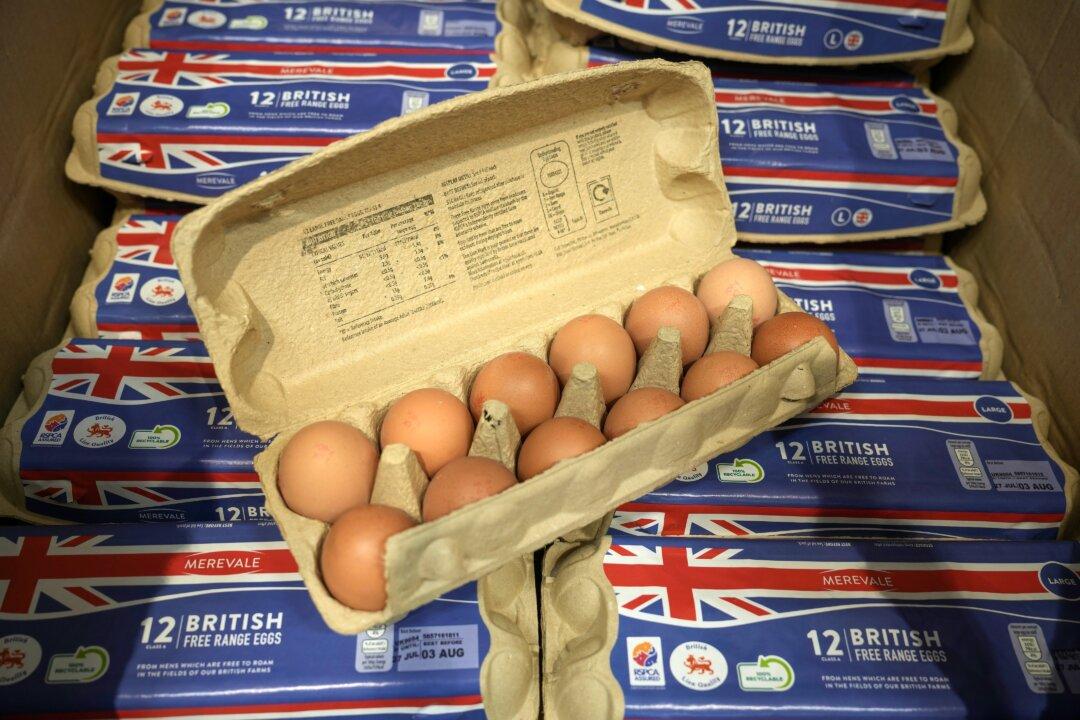Britain’s farmers are struggling to meet the demand for eggs as production is hit by avian flu and skyrocketing costs, low prices, and suppliers threatening to leave the industry.
Measures to keep all poultry and captive birds indoors in England to prevent the spread of bird flu came into force on Monday.





